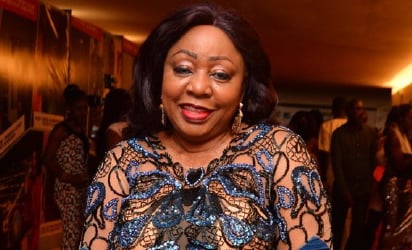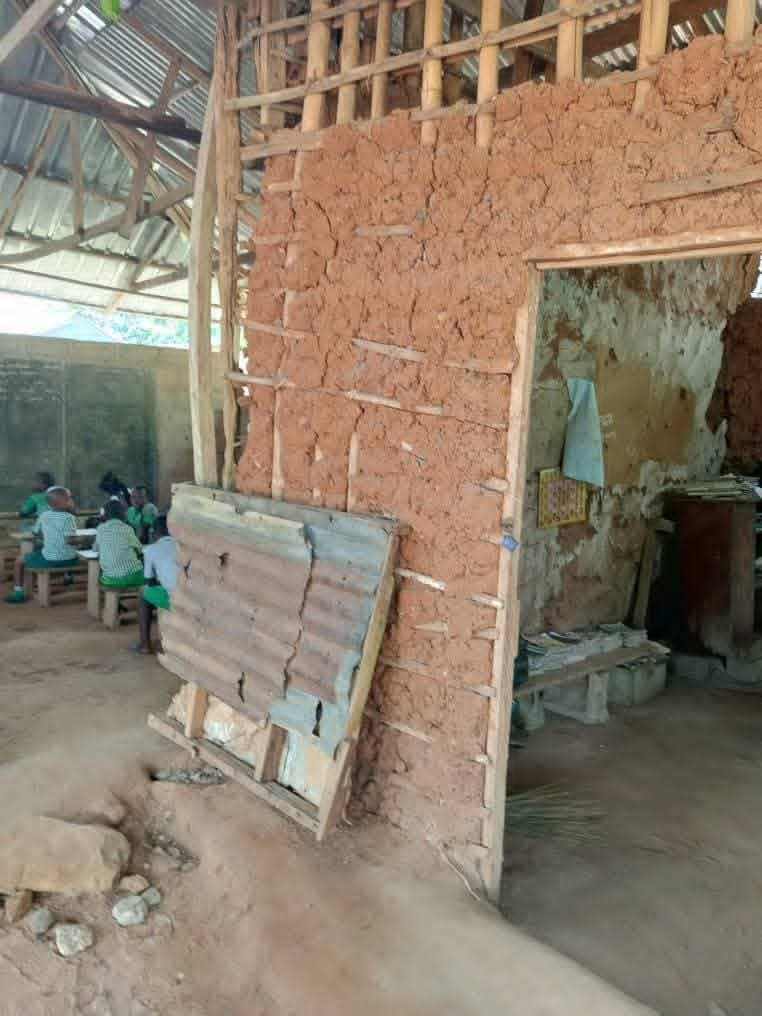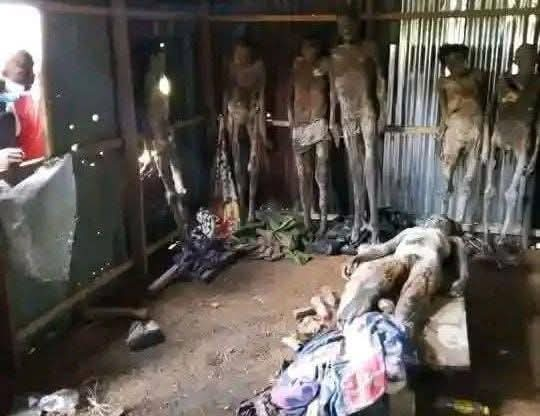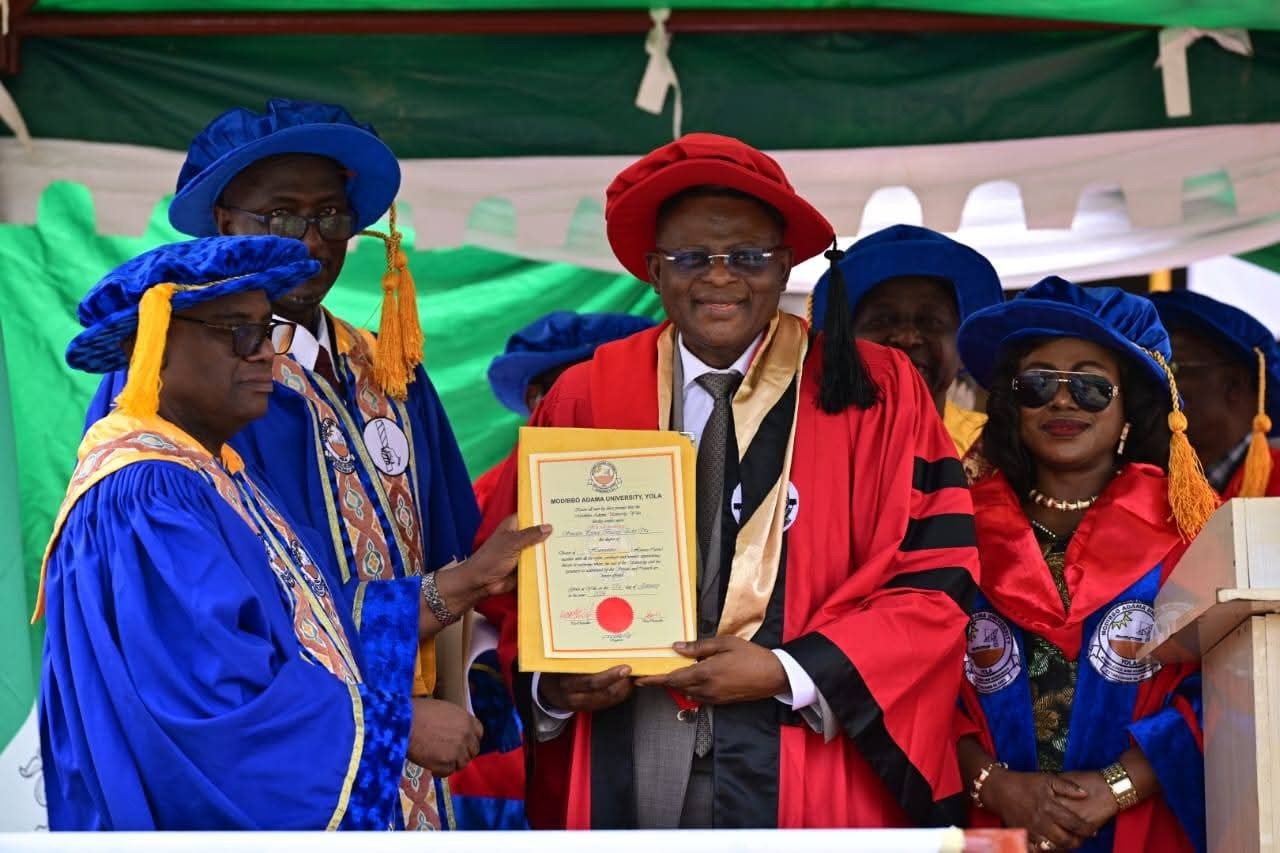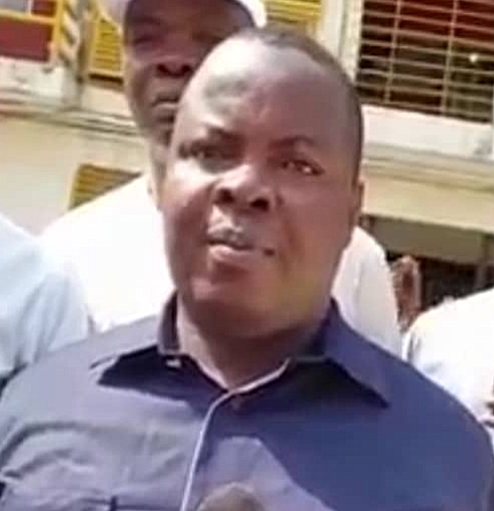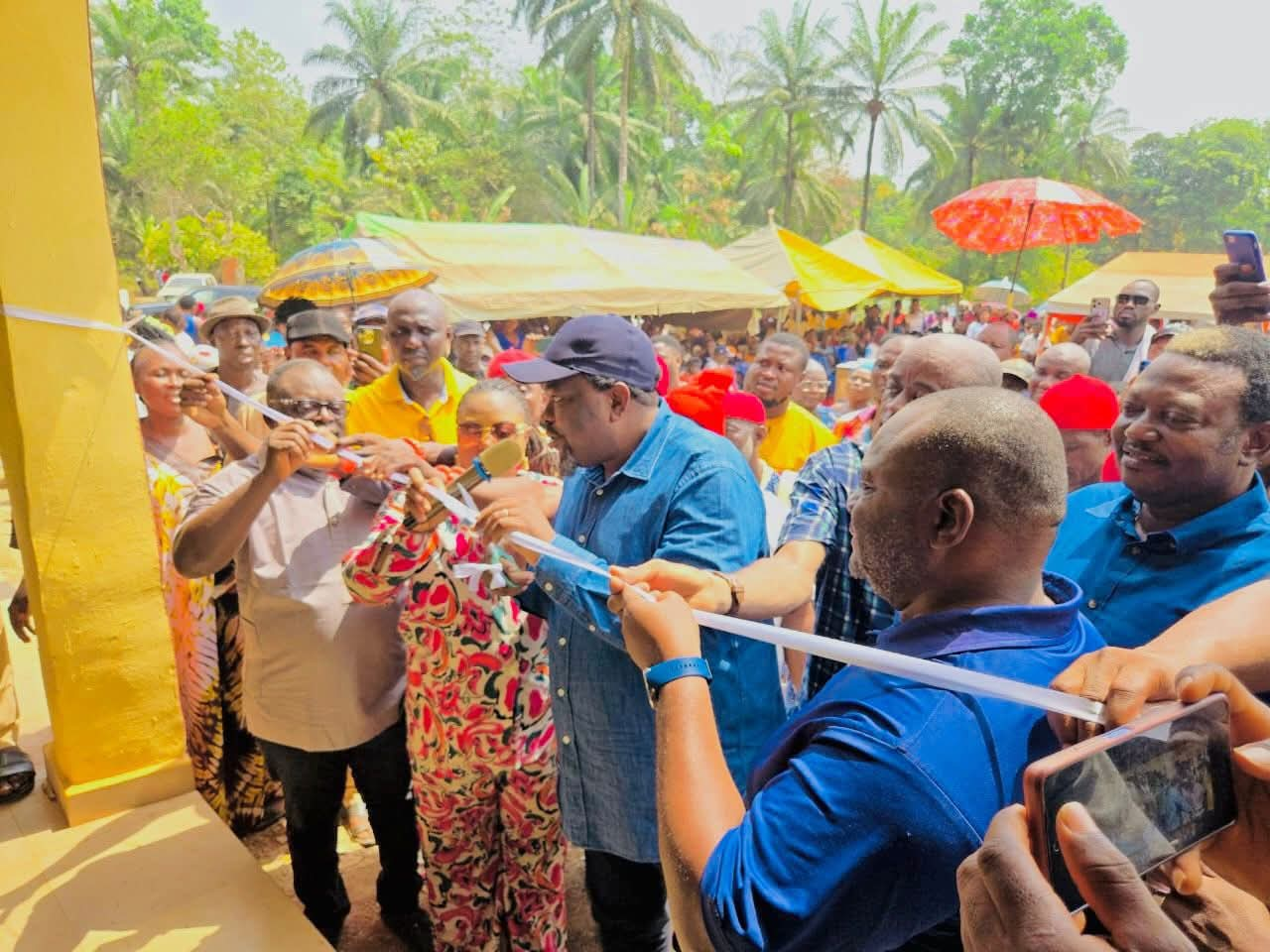
Nigeria as one nation remains the hope the African Continent, one that all of Africa has waited on for too long to lead the African renaissance. This hope and frustration have been expressed by several African leaders past and present, including Nelson Mandela, Uhuru Kenyatta, Atta Mills etc. Our huge population, our geographical location, and our multi-ethnic mix are all potentials we have failed to use to our advantage. It’s time we started asking the right questions. What is wrong with Nigeria? What is wrong with her leadership? What is wrong with her citizens? Why has Nigeria failed to rise and be counted among the community of nations fifty-five years after her birth? Why do we keep electing or maybe accommodating leaders who are hardly ever prepared for the job or have the requisite skills to lead? How do we account for the near, if not total collapse of our institutions, including but not limited to our judicial systems, our school system, our religious organizations, our infrastructure, our medical systems, our energy systems and indeed the confidence of an average Nigerian in our common ability to fix our problems?
We must admit that while there are no easy answers to these questions, these are questions we can no longer ignore or pass over. Now is the time to raise them, now is the time to engage the only country we have. I do not promise to proffer answers here, neither do I think we can tackle all these issues in a single article. I am only inviting us into what I will call “Operation fix Nigeria” as we prepare to start the New Year. We owe it to ourselves, our children deserve it, Africa is expecting it, and I am sure God is demanding it. There are no easy options, there never were. We’ve just got to start acting now. In this edition, I hope to take a look at “Leadership, Attitude and the Biafran Model”. However, the first part of this article will focus on Leadership, and Attitude with the second part focusing on the Biafran Model.
Leadership: I am amazed and I am sure you will be too, that ever since the days of Tafawa Balewa and Nnamdi Azikiwe, Nigeria has not been able to find a leader who could command respect around the world, inspire hope and confidence in Nigeria’s ability to lead Africa, articulate a vision to move Nigeria and the rest of Africa from a “maintenance” to a “thriving economy”. We have toyed about with leaders whose best has been colossal failure. Over the last 50+ years, under leaders from all stripes, military and civilian, we have seen our infrastructures deteriorate beyond repairs, the quality of school systems degenerate to unsustainable levels, the professionalism of our military, the police force, Church ministers damaged beyond redemption. Today, we can only remember with nostalgia, when we had land phones working in our homes, pipe borne water flowing into our homes or public taps, medical care available to most Nigerians, school systems with well trained and qualified teachers. The question then is, how did we get here? What went so wrong with Nigeria? How did we lose an entire generation to mediocrity, incompetence and ineptitude? These are troubling times, with very worrying signs. We can’t pray ourselves out of this mess. We can’t simply wish them away by outsourcing our responsibility to God. Miracles do happen.But we must do our part as Nigerians, if God must do His.
Leadership is not only about elected or appointed figures with high positions of responsibility. That only captures a narrow definition of leadership. Technically, everyone in whatever position is a leader, and ought to act as one, as long he/she has some influence in others’ life. Acting responsibly in that position and aiding others under one’s influence to do the same is what leadership from below represents. Change doesn’t have to always start from above. Indeed real and enduring change, historically has always started from below; from committed citizens who have had it and are ready to say, ‘ENOUGH”. We have to grow up as citizens. Now, “growing up requires courage, it is a continuous process of exposing our vulnerable areas, areas where we have not developed mastery”. It involves embracing the dark and often uncomfortable realities we hate to admit even to ourselves. It requires the radicalism to hold oneself and others accountable for our service to others. This is what Ira Chaleff calls “courageous followership”; being responsible and holding others responsible. This is leadership from below, leadership at its best. Sadly, this is a deficiency we must embrace and redeem for Nigeria’s survival and thriving. This leads me to my next ideas Attitude and the Biafran Model.
Attitude: There is a saying that your ‘altitude is always determined by your attitude’. My attitude to my country, job, religion, the other person, self, etc. will significantly determine how I end up in regard to of all these subjects. It is always very easy to sit down and critique and run commentaries as I am doing right now. This can get people talking. But unless I am resolved to start doing certain things differently in relation to how I relate to my country, job, religion, other persons, and self, nothing will change. The saying, “you should become the change you desire” aptly applies here. I will not be surprised if most Nigerians pass over this article as of no relevance. That itself is symptomatic of our problem. Intelligent people that we pride ourselves of being, how explain our aversion to intellectual discourse? If this where a prayer, asking God’s miraculous intervention in Nigeria and Nigerians, I will have any number of friends’ likes, comments, and re-postings. This is part of the attitude that we need to overcome as a people. We must overcome our tepidity, cynicism, timidity, and the celebration of mediocrity. Doing the least and expecting the most is not, and has never been a winning formula or a sustainable strategy. Mere praying and casting away our problems is no longer sufficient and never was anyway. We need a new orientation, a fresh attitude. We must re-think our relationships with, and our attitude to public wealth and property. I can’t honestly blame my Chairman, my Government, my House Member of abuse of public funds, if I will do the same when the chance occurs. Part of loving our country is honoring her wealth, and treating her resources with sacred trust. The good news is that every Nigerian in whatever position of responsibility can do this, while encouraging others to emulate us. This is patriotism in places where it matters most and where change can truly endure.
Secondly, we must learn to give back to our communities rather than take from her only. Sadly our orientation to taking from public coffers has become the yardstick with which “smart” and “successful” leaders are defined and categorized. You are considered a failure by “your People”, if after serving Government, you end up without excess wealth. Hence we defraud government and keep looking up to government to fix our every problem. Government alone will not solve all of Nigeria’s problems. We must pitch in and do our quota to assist government in governance. “Giving back” to our communities will help local community dwellers enjoy social amenities like equipped schools, well-staffed hospitals, job training opportunities, etc. that will unleash key potentials for development and empowerment among our less fortunate neighbors. “ For when you have been blessed beyond your capacity to spend, it is not time to expand and grow your estate, but time to expand and grow your giving”. Like St. Francis, we can make ourselves instruments and channels of God’s blessings to our own neighbors.
Thirdly, we must overcome our ethnic cleavages that have biased and prejudiced our views of and about others. We can’t get stuck with a zero-sum mindset, where a ‘win’ by one group means a loss for the other. Our inability to fight corruption, elect good leaders, hold our leaders accountable, fight terrorism, redeem our schools, apply our resources to best use, are explained by our misguided loyalties. Ralp Uwazuruike was right to point out that; “as long as Nigerians continue to see themselves first as Hausas/Fulanis, Yorubas, Ibos, Katafs, Tivs, Ijaws, etc., rather than Nigerians”, we will remain stuck in a mindset that sadly, spells doom for Nigeria. It was the reason we fought the civil war and I am afraid it might be the reason that breaks Nigeria, unless we each choose to liberate ourselves from these ethnic and religious demons. Our diversity if managed properly, ought to be our best resource, not the liability it has become today.
Finally, as a people we have to outgrow the mentality of “quick fixes”, “short-cuts”, and “fast cash”. Our near ‘lethal’ attraction to politics and our willingness to die for politics’ sake best capture this outlook. We have lost humanity’s key thriving asset; which is hard work and commitment to earned and deserved outcomes. As a result of this mindset, we have lost our attention to relevant details, our patience for good results, and our commitment to worthy causes, unless these benefit us personally. We see this in our students who pay to get good results, our police who insist on bribes while excusing crimes, teachers who extorts students and parents, politicians who defraud the system, pastors, men/women of God who exploit followers, etc. The good news is that reversing this trend is possible, the bad news is that too many will remain unwilling commentators on the sidelines. Nigeria can’t change on the shoulders of a few. It has to change on the resolution of every Nigerian.
The Biafran Model:
I will not be surprised if some people reacted with cynicism, suspicion, denial and/or near rebuttal to this submission. But this is my personal opinion, one that I hope readers will allow time to read, think through and digest before dismissing entirely. There is something unique about the Ibos that Nigeria continues to undermine, minimize and undercut at her own peril. Nigeria needs the Ibos for its renaissance. Its time we quit deceiving and deluding ourselves. The Ibos are not as dispensable as we imagine. If we disabuse our minds, bypass our prejudices and honestly confront the truth about our many ethnic groups, it is not difficult to see that the Ibos are exactly what Nigeria needs to be for an African Renaissance. Ibos have proven themselves in Nigeria as the most astute, committed, unyielding, over-powering, dogged, hardworking and enterprising ethnic group. If you are tempted to deny this assertion, think of Lagos and who is making Lagos work, think of Abuja and who is keeping things in motion, think of your closest town, in my case, Calabar, Ogoja and Ikom, and it is the Ibos driving commerce and with it life in general.
The Ibo man/woman is not waiting to be gifted anything or to have someone determine his/her altitude. He/she wants and fights constantly to determine his/her destiny, his/her altitude, but most importantly, his/her attitude. Think of how Ibos executed the civil war relying mostly on their imagination, innovation and weapon building skills, while the Nigerian Military depended wholesomely on foreign made weapons. Such wholesome dependence has remained the paralyzing and crippling force depressing and demotivating us from unleashing our creative potentials. 55 years after independence and we are still an overwhelmingly consuming economy. Think of our local spare parts manufacturers and Ibos will undoubtedly lead the way. This is no mere coincidence. The Ibos have something the rest of Nigeria must embrace. Time is ripe to start taking Ibos seriously. Time is ripe to address the injustices they have endured and time is ripe to move beyond the civil war mindset and allow Ibos to lead Nigeria at least once. Time is up to seek in the words of Former President Obasanjo, constructive and creative dialogue between our various ethnic groups, while accommodating our socio-cultural and religious differences. Like him I agree, we do not need another war. Nigeria can’t survive the potential human and financial cost of another war. We are still reeling from the effects of the past war. We will be best served if we worked to reconcile our differences and stick together as one Nation. With General Gowon, we must sing the unity anthem “One Nigeria is a task that we ought to do”. Only a united Nigeria can lead Africa, only a united Nigeria can command the World’s respect, only a united Nigeria can thrive while providing a model for the rest of Africa. I conclude by inviting all non-Ibos to try to accommodate the possibility of an Ibo presidency and an Ibo mindset as we match towards a Nigerian renaissance. May God bless the Federal Republic of Nigeria.
Philip Paul Tah, a Roman Catholic priest wrote in from New York, USA.
Email: fr.philip-tah@fountainsofcompassion.org

